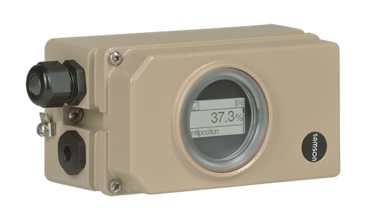The Constant
Positioners became key elements at the field level with the onset of the Industrial Internet of Things (IIoT) and Industry 4.0. On this basis, the new Ethernet-APL industry standard promises to unleash its full potential: fast communication, proven two-wire installation and use in hazardous areas. The same holds true for SAMSON's TROVIS 3797 Positioners with PROFINET® communication. They work with Ethernet-APL technology and exchanges data 300 times faster than with today's fieldbus protocols.
Real-time data
- Three Step-Initialization
- Initialization button
- Rotary pushbutton
- Autotune
Flexibility
- software limit contacts
- fault alarm contact
- inductive limit contacts
- Analog feedback (4 to 20 mA)
- Binary input
- Safe venting function (24 V)
- External position sensor
- Pressure sensors
High plant availability
- Integrated valve diagnostics EXPERTplus
- Access to diagnostic data over all available interfaces
Continous Improvement
- Low wear
- Insensitive to steam/water hammer
- higher resolution
- Multi-language capability
- Clear parameter description
SAMSON sets new standards
-
Valve monitoring
Positioners are indispensable for implementing smart communication in today's control valves. Positioners compile important data about the valves as well as the entire control process. These data shine a light on the actual valve state. At SAMSON, valve diagnostics are integrated directly into the positioners. The positioners are able to save and analyze the data directly on site. Crucial diagnostic data are available in the field but they can also be transmitted to a central asset management system.
-
Monitoring functions
The monitoring functions play an important role in the valve diagnostics. They keep track of the valve while the process is running without disturbing it. The monitoring functions help reveal incorrect attachment, pneumatic leakage, low supply pressure, zero shifts as well as internal and external leakage at the valve.
-
Test functions
Diagnostic tests are performed to verify the results of the monitoring functions. These tests have priority over the positioner's actual job to position the valves. The partial stroke test (PST) and full stroke test (FST), which can be performed manually or automatically, are important test functions to check whether valves can move on demand and analyze the dynamic control response.
-
Status messages
The valve diagnostics integrated into the SAMSON positioners generate status messages classified according to NAMUR Recommendation NE 107. To provide a better overview of all status messages and the valve state, all status messages are summarized in a condensed state. The status message with the highest priority determines the condensed state and the action to be taken.
-
Plant monitoring
Valve monitoring is based on the data logged by the positioner and the integrated diagnostic functions. However, valve diagnostics cannot provide an overall assessment of all the valves in a plant. In this case, combined solutions that make use of both valve diagnostics and a higher-level asset management system, such as SAM VALVE MANAGEMENT, are the ideal approach. Complex mathematical operations paired with a considerably broader data base from the valve history open up new opportunities for data analysis. They also enable the asset management system to verify the information on the control valves' condition provided by the positioners. As a result, all control valves linked to the system can be monitored at a glance. Users benefit from the clear instructions and maintenance recommendations provided by the system.
These industries work with our solutions










